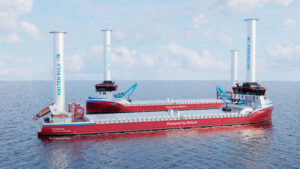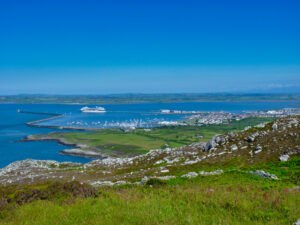In a new survey presented on the Day of the Seafarer which was celebrated on Sunday, the International Seafarers’ Welfare and Assistance Network (ISWAN) is concerned that the changes that the maritime sector is undergoing in order to achieve net zero carbon by 2050, could be placing additional stress on seafarers’ mental health and potentially further eroding their wellbeing at work.
The annual Day of the Seafarer (25 June) was established in a resolution adopted by the 2010 Diplomatic Conference in Manila, Philippines. According to IMO, its stated purpose is to recognize the unique contribution made by seafarers from all over the world to international seaborne trade, the world economy and civil society as a whole.
The drive to decarbonise brings with it the enormous challenges of ensuring that seafarers have the training and skills that they need to manage new technologies and fuels safely.
ISWAN notes that a recent study commissioned by the Maritime Just Transition Task Force found that up to 800,000 seafarers could require additional training to handle alternative fuels and technologies by the mid-2030s.
It is, however, crucial that seafarers’ wellbeing is not overlooked amidst the urgent imperatives to upskill seafarers and to meet environmental targets.
The rapid technological changes in maritime come at a time when seafarers have already faced unprecedented levels of challenge: the COVID-19 pandemic, the crew change crisis and the lack of shore leave have all added additional pressures to what was already a highly demanding and often stressful profession.
These factors are already leaving some seafarers to seek alternative careers on shore, contributing to a growing recruitment and retention crisis in the shipping industry.
From contact with seafarers through its helplines and regional casework, ISWAN is concerned that the changes that the maritime sector is undergoing for achieving decarbonization by 2050 could be placing additional stress on seafarers’ mental health.
As well as understanding the difference – whether positive or negative – that technological change is making to working in maritime, the ISWAN survey also seeks to gain insight from seafarers and shore-based staff into how shipping companies and crewing agents can best support them to adapt to the rapid pace of change.
Chirag Bahri, ISWAN’s International Operations Manager, said: ”This year, IMO’s Day of the Seafarer focuses on seafarers’ central role in protecting the marine environment. Nowhere is this more apparent than in the vital role seafarers play in implementing the wide-reaching changes that will be needed for the maritime industry to reach zero carbon. However, this cannot be at the expense of seafarers’ wellbeing”.
”ISWAN’s new survey aims to shed light on how the shipping industry can give seafarers the support they need to put into practice the technological changes that will be needed to meet international decarbonisation goals. This will be crucial in ensuring that the maritime industry can recruit and retain the skilled and motivated crew that they will need to operate the zero-carbon global fleet of the future,” Bahri pointed out.



